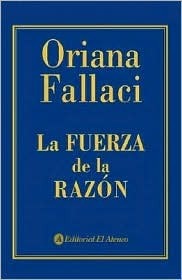
Oriana Fallaci was an Italian journalist and author. A member of the Italian resistance movement during World War II, she had a long and successful journalistic career. Fallaci became famous worldwide for her coverage of war and revolution, and her "long, aggressive and revealing interviews" with many world leaders during the 1960s, 1970s, and 1980s.

"Eurabia" is a far-right, anti-Muslim conspiracy theory that posits that globalist entities, led by French and Arab powers, aim to Islamize and Arabize Europe, thereby weakening its existing culture and undermining its previous alliances with the United States and Israel.
Gisèle Littman, better known by her pen name Bat Ye'or, is an Egyptian-born British-French author, who argues in her writings that Islam, anti-Americanism and antisemitism hold sway over European culture and politics.
Dhimmitude is a neologism characterizing the status of non-Muslims under Muslim rule, popularized by the Egyptian-born British writer Bat Ye'or in the 1980s and 1990s. It is a portmanteau word constructed from the Arabic dhimmi 'non-Muslim living in an Islamic state' and the French (serv)itude 'subjection'.
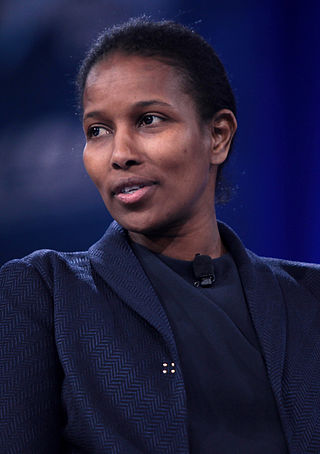
Ayaan Hirsi Ali, Lady Ferguson is a Somali-born Dutch-American writer, activist and former politician. She is a critic of Islam and advocate for the rights and self-determination of Muslim women, opposing forced marriage, honour killing, child marriage, and female genital mutilation. At the age of five, following local traditions in Somalia, Ali underwent female genital mutilation organized by her grandmother. Her father—a scholar, intellectual, and a devout Muslim—was against the procedure but could not stop it from happening because he was imprisoned by the Communist government of Somalia at the time. Her family moved across various countries in Africa and the Middle East, and at 23, she received political asylum in the Netherlands, gaining Dutch citizenship five years later. In her early 30s, Hirsi Ali renounced the Islamic faith of her childhood, began identifying as an atheist, and became involved in Dutch centre-right politics, joining the People's Party for Freedom and Democracy (VVD).

The Rage and the Pride is a book released by Oriana Fallaci in 2001. The book accuses the West of being blind to the true threat of Islam, and was written in New York City in the weeks following the September 11 attacks. The controversial book became a bestseller, selling over one million copies in Italy and 500,000 in the rest of Europe, becoming number one on non-fiction bestseller lists in France and Germany.

Sabina Guzzanti is an Italian satirist, actress, writer, and producer whose work is devoted to examining social and political life in Italy.
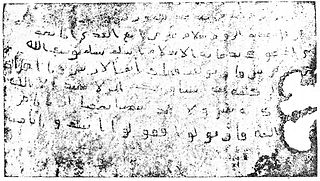
Aslim Taslam is a phrase meaning "submit and you will get salvation", taken from the letters sent by the Islamic prophet Muhammad to various rulers in which he urged them to convert to Islam.
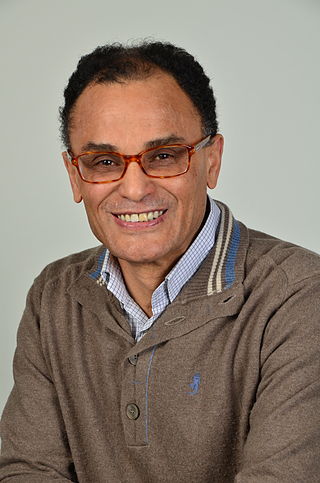
Magdi Cristiano Allam, is an Egyptian-Italian journalist and politician, noted for his criticism of Islam and his articles on the relations between Western culture and the Islamic world.
Lan astaslem is an Arabic phrase meaning "I will not surrender". The term is used by Christians in reference to Aslim Taslam.

In sha Allah or Inshallah is a real life based novel written by Oriana Fallaci chronicling the experiences of a fictional group of Italian soldiers on a 1983 peace keeping mission in Beirut. The novel draws heavily on Fallaci's own experiences of war, covering the Middle East as a war correspondent throughout the 1980s. It has been published in Italy by the editor Rizzoli in 1990. The title refers to the Arabic phrase إن شاء الله that means "God willing" or "if Allah wills".

Douglas Murray is a British author and conservative political commentator, cultural critic, and journalist. He founded the Centre for Social Cohesion in 2007, which became part of the Henry Jackson Society, where he was associate director from 2011 to 2018.
Adel Smith, born Emilio Smith in Alexandria, Egypt, was an Italian Muslim known for his radical stances and often accused of fundamentalism. He was the son of a Naples-born Italian architect of Scottish descent and an Egyptian woman. Smith relocated to Italy as a child and later made a living as a translator for Arabic-speaking tourists in Rome. Raised as a Catholic, he eventually converted to Islam. He later relocated to Albania, where he worked as a printer, before coming back to Italy and settling in the village of Ofena.
Criticism of multiculturalism questions the ideal of the maintenance of distinct ethnic cultures within a country. Multiculturalism is a particular subject of debate in certain European nations that are associated with the idea of a nation state. Critics of multiculturalism may argue against cultural integration of different ethnic and cultural groups to the existing laws and values of the country. Alternatively critics may argue for assimilation of different ethnic and cultural groups to a single national identity.

Khalilah Sabra ( is an American advocate, attorney, and author best known for her work with refugees in the Middle East and literary contributions to the Joe L. Kincheloe and Shirley R. Steinberg series Transgression: Cultural Studies and Education. She was converted to Islam in the age of 15.

L'Europeo was a prominent Italian weekly news magazine launched on 4 November 1945, by the founder-editors Gianni Mazzocchi and Arrigo Benedetti. Camilla Cederna was also among the founders. The magazine stopped publication in 1995. The title returned to the news-stands in 2001 and 2002 as a quarterly, then as a bi-monthly from 2003 to 2007 and a monthly from 2008, until closure in 2013.
Hallgrim Berg is a Norwegian author, traditional folk musician, and former politician for the Conservative Party. He was a member of the Norwegian Parliament from 1982 to 1997, representing Buskerud. He has released several books and been involved in several musical albums, and held numerous public positions.
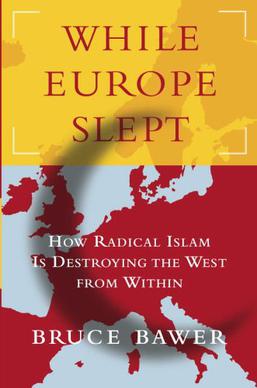
While Europe Slept: How Radical Islam is Destroying the West from Within is a 2006 book by Bruce Bawer. It was Bawer's second book dealing with the issue of religious fundamentalism, following his earlier Stealing Jesus: How Fundamentalism Betrays Christianity, a critique of fundamentalist Christianity published in 1998.
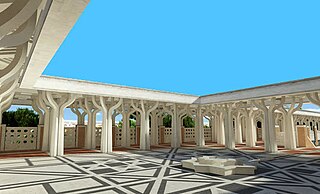
Islamophobia is characterized by a hatred against the religion of Islam and those perceived to be following the religion, typically fueled by fear and hatred and sustained through the evolving stereotype of the Muslim identity. It has become increasingly common and widespread throughout the world, in particular since the September 11 attacks in the United States, however it existed in society before this. In Europe, there has been an increase in cultural tensions between national majorities and marginalized Muslim countries, as shown by the results of the 2009 elections in the European Parliament with a large vote toward anti-immigration. Within Italy, there is a large Islamic presence of approximately 1.25 million people, stemming from the widespread migration and settlement that began in the 1970s, in particular from North Africa. The Islamic population of Italy increasingly faces challenges when it comes to their position in society, with the increasing cultural hostility that stems from the growing presence of Islamophobia. Islamophobia has been present within Italy for many years; for example, in the 1920s, Muslims were not permitted to settle in the country due to their religion being viewed as "against common morality." The intensity of Islamophobia in Italy is enhanced by the historical religious structure of the state – which is heavily based on the Catholic Church.
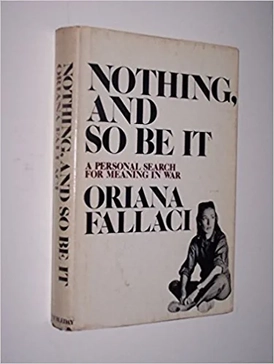
Nothing, and So Be It is a first-hand account book by Italian journalist Oriana Fallaci about a year as a war correspondent in Saigon, Vietnam, between 1967 and 1968. It was first published in Italian in 1969. Fallaci based the book on the testimony of several American soldiers who participated in the Mỹ Lai massacre and the reports of some of the survivors. She received the Bancarella Prize (1970) for the book.
